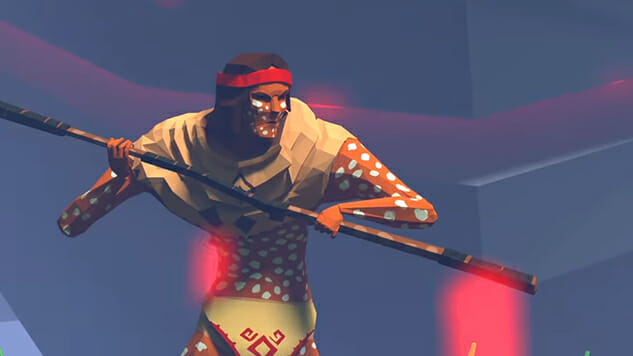Mulaka Is a Reminder of Whose Stories Go Untold

Games are no stranger to using myth and folklore as guide for storytelling. Hellblade: Senua’s Sacrifice, Kid Icarus, God of War, and Jotun: these are just a few games loosely based off ancient mythos. One important thing these four games share with each other is their basis in Greek or Norse mythologies, two cultures whose stories are told so often that it’s become cliche, sometimes even problematic. They’re both subject to a constant cultural recycling seen not just in games, but repeated in textbooks, fiction, movies, and other forms of media. This unfortunately leaves other meaningful perspectives out of the public eye, but now, some game developers are working to change that.
Mulaka, created by indie studio Lienzo, is about a Tarahumaran sukurúame, or shaman, named Mulaka who is tasked with ridding the world of evil beasts that have come to rule it. The Tarahumara are a group of native American people in Northern Mexico, and while the game isn’t meant to provide a complete education on their tribe, it does give a small look into the wonders of their culture, highlighting the folklore prevalent in the Tarahumaran society. Loading screens give brief insight into oral traditions, tales of rainbows made from hateful men, and trees fighting each other for territory. The game is also supported by cultural experts and financial provision from the Chihuahua Institute of Culture and YOREME fund. As stated in a mini-documentary about the making of Mulaka (seen below), Cultural Manager Enrique Servín even sees the game as an attempt to mend the way some people view indigenous people, saying, “We live in a very racist society, a society that has put enormous pressure on minorities, and I think these cultural products help very much in trying to heal these wounds.”
 Keep scrolling for more great stories.
Keep scrolling for more great stories.
